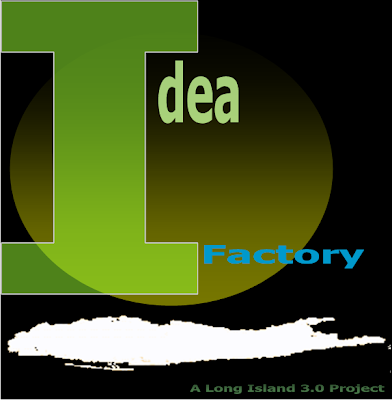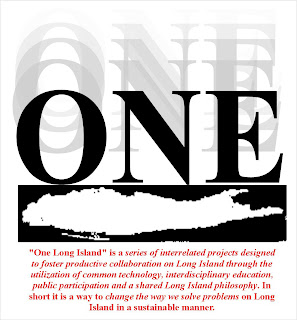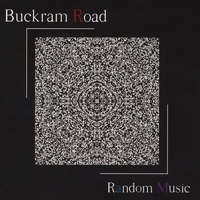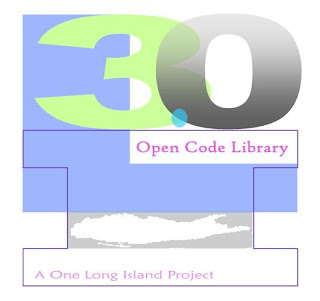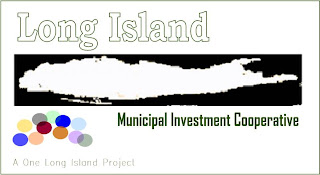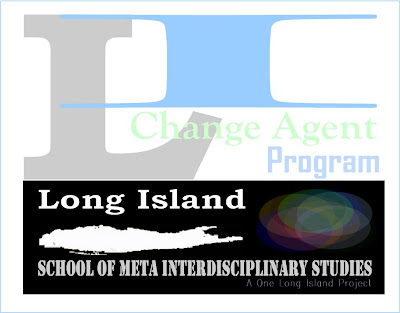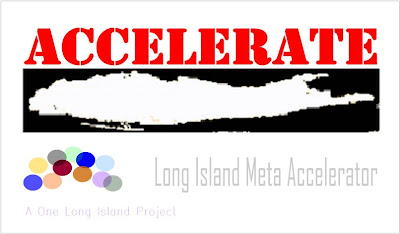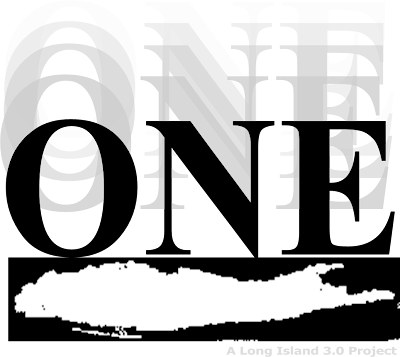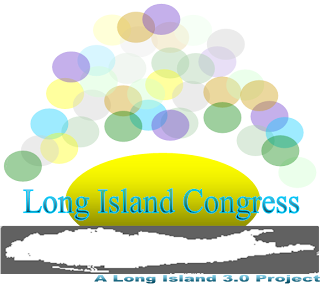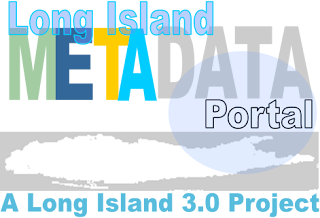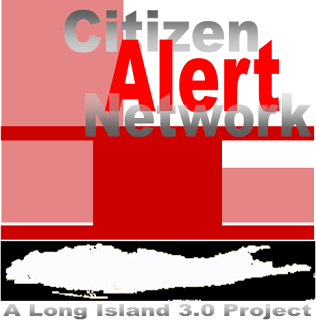Tuesday, June 24, 2008
Meta-Leadership: Part II
We referenced a good article on "Meta - Leadership" in an earlier post.
Although I'm not a big advocate for "leaders" being able to solve all our problems (I much prefer a broad based collaborative model, for all the reasons mentioned in the previous 250 posts), since we live in essentially a quasi-hierarchical model, leaders do have an important role in fostering collaboration and finding workable solutions.
But who do we "hire" as leaders and what should their qualifications be?
Well first, it would be an important asset to be someone who can find common attributes between concepts, ideas, organizations and people.
What makes us similar? How can Group A assist Group B? How can I make the "situation" good for everyone? How do I create a "dynamic" atmosphere for continued positive growth and sustainability.
What we don't need is, hire me I have all the answers and I'll take care of your every need. That's too easy and too dangerous.
Democracy and sustainability require hard work and accountability on all levels.
Do we even train folks to be "meta-leaders?" Do our leaders engage in "meta think" or are they victims of the expedient. Do we allow long term, broad based action to take time to develop properly? Do we give ourselves a chance to be successful?
Do we need a whole new school to teach "meta interdisciplinary thought and action."
On Long Island, as is the case elsewhere, we need leaders who can "connect the dots" across disciplines and forge collaborative partnerships divorced from competitive, political or personal issues.
Every area, whether its a state, county or any geographic region can not be the same. All have unique attributes.
With all due respect to states rights folks, if for example, state A is better suited for project Y, shouldn't we as a nation support state A be successful? Shouldn't all states support one another in maximizing what they do best? If all states are successful, isn't our nation successful?
Shouldn't a meta-leader, on any level, be able to help conceptualize and help implement a collaborative effort to achieve these goals?
The ideal in America is one of fairness and equity. A meta-leader who can inspire these ideals is worth listening to. A meta-leader who can help turn these ideals into reality is worth "hiring."
More in part III
Although I'm not a big advocate for "leaders" being able to solve all our problems (I much prefer a broad based collaborative model, for all the reasons mentioned in the previous 250 posts), since we live in essentially a quasi-hierarchical model, leaders do have an important role in fostering collaboration and finding workable solutions.
But who do we "hire" as leaders and what should their qualifications be?
Well first, it would be an important asset to be someone who can find common attributes between concepts, ideas, organizations and people.
What makes us similar? How can Group A assist Group B? How can I make the "situation" good for everyone? How do I create a "dynamic" atmosphere for continued positive growth and sustainability.
What we don't need is, hire me I have all the answers and I'll take care of your every need. That's too easy and too dangerous.
Democracy and sustainability require hard work and accountability on all levels.
Do we even train folks to be "meta-leaders?" Do our leaders engage in "meta think" or are they victims of the expedient. Do we allow long term, broad based action to take time to develop properly? Do we give ourselves a chance to be successful?
Do we need a whole new school to teach "meta interdisciplinary thought and action."
On Long Island, as is the case elsewhere, we need leaders who can "connect the dots" across disciplines and forge collaborative partnerships divorced from competitive, political or personal issues.
Every area, whether its a state, county or any geographic region can not be the same. All have unique attributes.
With all due respect to states rights folks, if for example, state A is better suited for project Y, shouldn't we as a nation support state A be successful? Shouldn't all states support one another in maximizing what they do best? If all states are successful, isn't our nation successful?
Shouldn't a meta-leader, on any level, be able to help conceptualize and help implement a collaborative effort to achieve these goals?
The ideal in America is one of fairness and equity. A meta-leader who can inspire these ideals is worth listening to. A meta-leader who can help turn these ideals into reality is worth "hiring."
More in part III
Friday, June 20, 2008
Long Island Referendum Cycle: Part Two
We've been advocating a more "dynamic" form of organization on Long Island on this site (and since 1993) with a whole host of interconnected ideas.
So why propose a referendum cycle?
A cycle of referenda on major issues, either one per year or multiple per year, ensures that ideas, information and analysis are continually reviewed, updated and subject to public debate and modification.
This cycle requires, even forces public participation and debate on the issues that govern Long Island.
No issue can be "put on the shelf" for too long. Information is not allowed to get "stale."
"Finger pointing" and the "blame game" will subside as citizens feel more "empowered" and less "dependent" on traditional forms of organization which many believe have not been adequate to address current issues.
More in Part Three.
Please note: This is our 250th post.
So why propose a referendum cycle?
A cycle of referenda on major issues, either one per year or multiple per year, ensures that ideas, information and analysis are continually reviewed, updated and subject to public debate and modification.
This cycle requires, even forces public participation and debate on the issues that govern Long Island.
No issue can be "put on the shelf" for too long. Information is not allowed to get "stale."
"Finger pointing" and the "blame game" will subside as citizens feel more "empowered" and less "dependent" on traditional forms of organization which many believe have not been adequate to address current issues.
More in Part Three.
Please note: This is our 250th post.
Tuesday, June 17, 2008
Monday, June 9, 2008
Collaborative Rationalism: Part One
Interesting article today on turning Long Island's downtowns into more interesting places to live and work.
Contained in the article is this quote:
“Everything is so interconnected, so you feel sometimes that you can’t fix anything until you fix everything,” said Mayor Ernest J. Strada of the village of Westbury, talking at one point about a zoning question, but really addressing a deeper issue — the lack of a central planning authority on Long Island, a problem that exists in many suburbs. Each of the more than 100 communities of Nassau and Suffolk Counties have zoning and planning agencies that govern development within their own borders."
Also in the paper today is Nassau County's interest in redeveloping 105 acres it owns in Bethpage. Perhaps someone will propose a "cool downtown" with "next generation" housing adjoining "21st Century" business opportunities. Time will tell.
Mayor Strada is correct in stating that "everything is interconnected." But then again, it always was. There's just more of it now.
Also true is the fact that there is no central planning authority on Long Island, but don't hold your breath waiting for one anytime soon. That would take almost an act of nature to accomplish.
What we can strive for and are attempting to strive for in the One Long Island series of idea is something akin to a new "collaborative rationalism."
If we define:
For example a "B Zone and related regulations" in North Hempstead is equivalent what zone or zones in Smithtown?
It is a reasonable easy project to come up with a Long Island Meta Zoning map (or Long Island Comprehensive Meta-Planning Project or any one of a dozen similar names we might name this concept). It might not be perfect but is is doable and would be a useful first step.
More in part II.
Contained in the article is this quote:
“Everything is so interconnected, so you feel sometimes that you can’t fix anything until you fix everything,” said Mayor Ernest J. Strada of the village of Westbury, talking at one point about a zoning question, but really addressing a deeper issue — the lack of a central planning authority on Long Island, a problem that exists in many suburbs. Each of the more than 100 communities of Nassau and Suffolk Counties have zoning and planning agencies that govern development within their own borders."
Also in the paper today is Nassau County's interest in redeveloping 105 acres it owns in Bethpage. Perhaps someone will propose a "cool downtown" with "next generation" housing adjoining "21st Century" business opportunities. Time will tell.
Mayor Strada is correct in stating that "everything is interconnected." But then again, it always was. There's just more of it now.
Also true is the fact that there is no central planning authority on Long Island, but don't hold your breath waiting for one anytime soon. That would take almost an act of nature to accomplish.
What we can strive for and are attempting to strive for in the One Long Island series of idea is something akin to a new "collaborative rationalism."
If we define:
ra·tion·al·ism
n.
1. Reliance on reason as the best guide for belief and action.
2. Philosophy The theory that the exercise of reason, rather than experience, authority, or spiritual revelation, provides the primary basis for knowledge.
intr.v. col·lab·o·rat·ed, col·lab·o·rat·ing, col·lab·o·rates
1. To work together, especially in a joint intellectual effort.
then we may define "collaborative rationalism" as the act of working together for a common cause based on reason (facts, meta data , analysis etc) and furthermore using this "collaborative rationalism" as a basis for our Long Island Philosophy and the main driving force behind a better more sustainable future for Long Island.
For example a "B Zone and related regulations" in North Hempstead is equivalent what zone or zones in Smithtown?
It is a reasonable easy project to come up with a Long Island Meta Zoning map (or Long Island Comprehensive Meta-Planning Project or any one of a dozen similar names we might name this concept). It might not be perfect but is is doable and would be a useful first step.
More in part II.
Friday, June 6, 2008
Some excellent ideas ...
I just returned from New York Institute of Technology's "Sustainable Solutions for Converging Crises" conference.
While all the presenters were excellent, two presenters in particular stood out as having great relevancy and potentially effective applications for Long Island.
Project Better Place is a brilliant concept for the distribution of electric automobiles.
Daniel Lerch of the Post Carbon Institute has written a very clearly thought out book regarding the energy crisis and its impact on public policy.
Both sites are well worth your time and effort.
While all the presenters were excellent, two presenters in particular stood out as having great relevancy and potentially effective applications for Long Island.
Project Better Place is a brilliant concept for the distribution of electric automobiles.
Daniel Lerch of the Post Carbon Institute has written a very clearly thought out book regarding the energy crisis and its impact on public policy.
Both sites are well worth your time and effort.
Subscribe to:
Posts (Atom)

